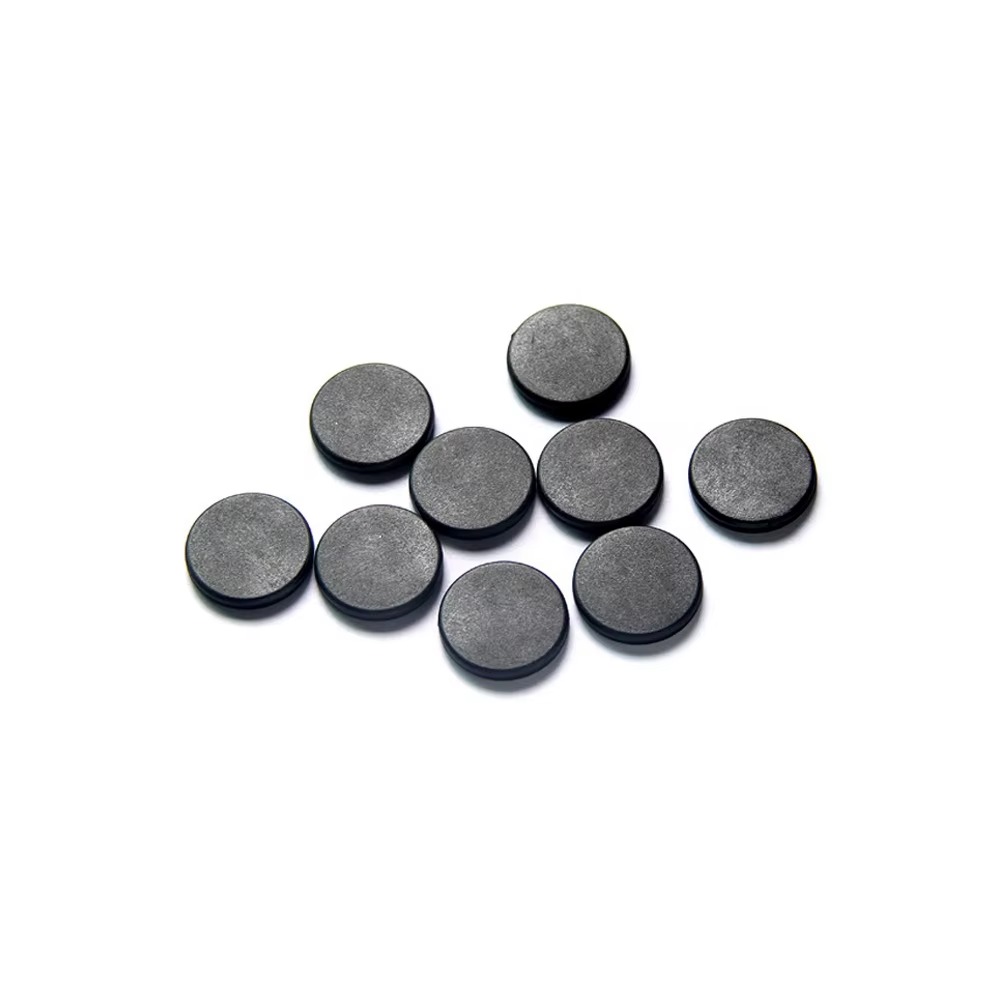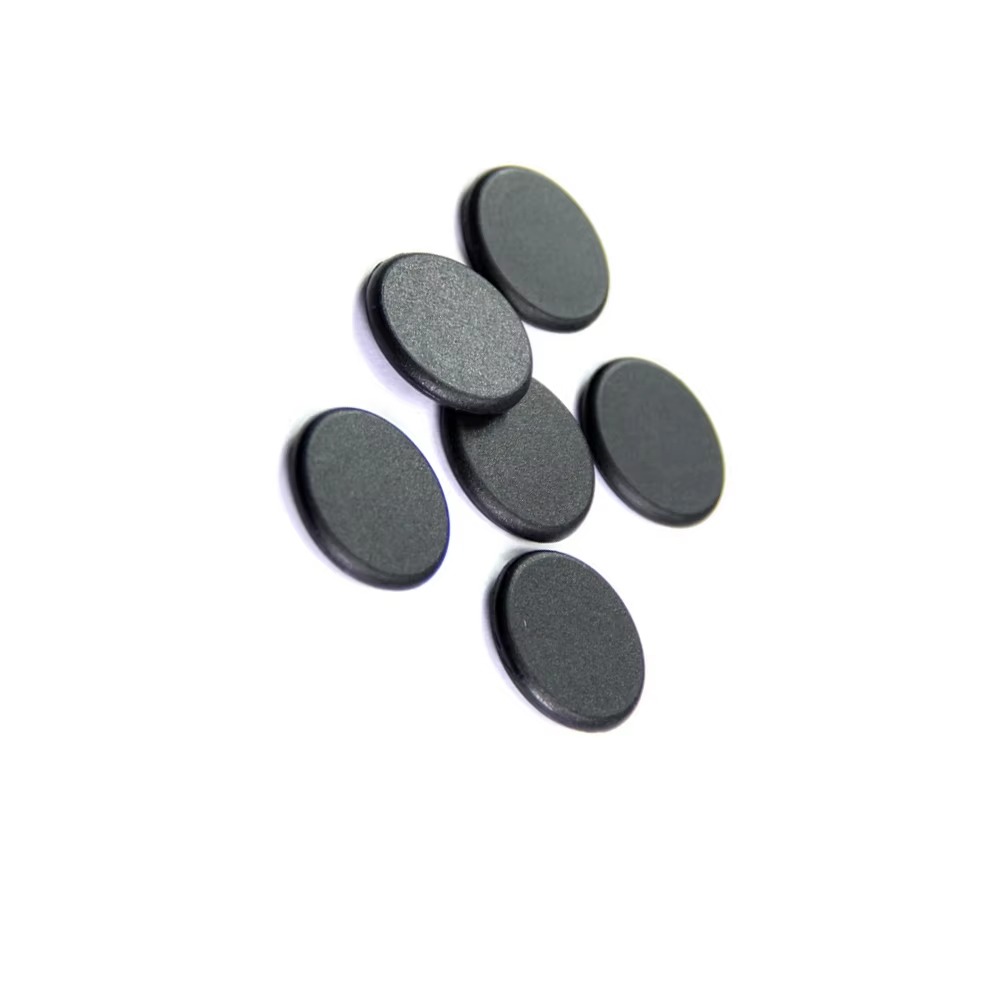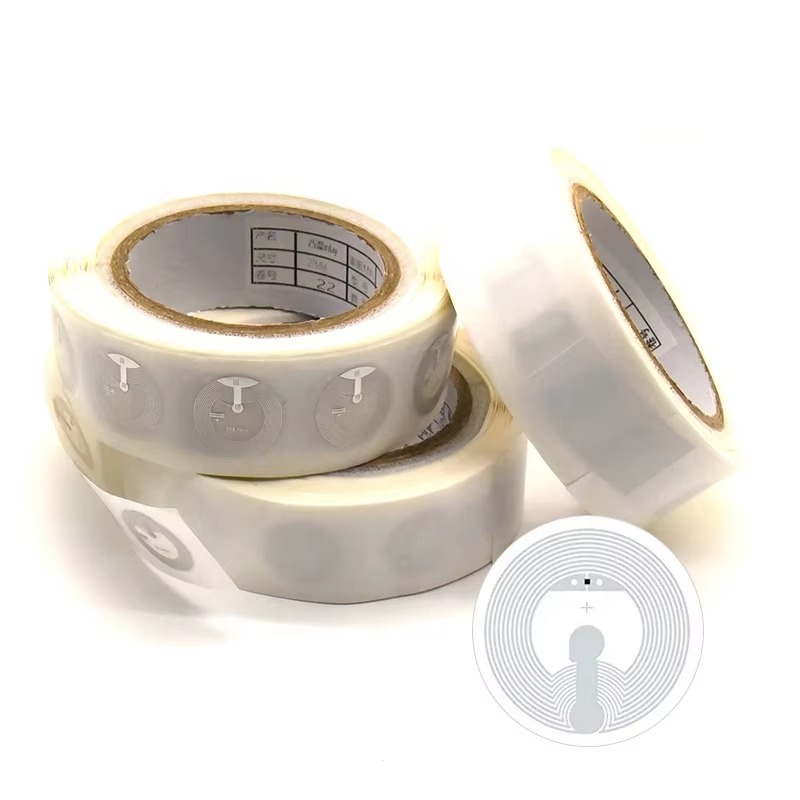
Versatile Custom NFC Labels for Secure and Convenient Applications
Custom NFC labels offer a versatile and reliable solution for various industries, providing seamless integration with NFC-enabled devices such as smartphones.
PPS RFID Laundry Tags are specialized radio frequency identification (RFID) tags designed specifically for use in the harsh environments of industrial laundry processes. Constructed from Polyphenylene Sulfide (PPS), a type of engineering plastic known for its exceptional heat and chemical resistance, these tags can withstand temperatures ranging from 180 to 220 degrees Celsius and are highly durable, making them ideal for use in high-temperature and corrosive conditions typically found in commercial laundries. The technology underlying PPS RFID laundry tags allows for the automated tracking and intelligent sorting of garments, significantly improving operational efficiency and accuracy in laundry management. By embedding these tags into linens and uniforms, businesses such as hotels, hospitals, and large-scale laundromats can streamline their inventory management processes, reduce manual errors, and ensure timely delivery and maintenance of textiles. These tags operate at various frequencies (HF and UHF) and are available in different sizes, offering flexibility to meet the specific needs of diverse applications. RFID technology, which has evolved significantly since its inception in the early 1970s, has found extensive use across multiple industries. The development of PPS RFID laundry tags represents a significant advancement in this field, enabling more robust and reliable asset tracking solutions in the laundry sector. The integration of RFID systems in laundry operations provides real-time data capture, enhancing the overall efficiency and productivity of these operations. Despite their numerous benefits, the implementation of PPS RFID laundry tags does come with challenges, including high initial costs and concerns over data management and privacy. However, ongoing advancements in RFID technology and the increasing adoption of Internet of Things (IoT) ecosystems promise to address these issues, paving the way for more sophisticated and integrated laundry management solutions in the future.
RFID (Radio Frequency Identification) technology has a rich history dating back to the early 1970s. Mario Cardullo’s device, patented on January 23, 1973, is recognized as the first true ancestor of modern RFID. Cardullo’s invention was a passive radio transponder with memory, initially demonstrated in 1971 to the New York Port Authority and other potential users.The device was powered by the interrogating signal and included a transponder with a 16-bit memory designed for use as a toll device. Cardullo’s patent covers the use of radio frequency, sound, and light as transmission carriers, with proposed applications in transportation, banking, security, and medical fields. In 1973, an early demonstration of reflected power (modulated backscatter) RFID tags, both passive and semi-passive, was conducted by Steven Depp, Alfred Koelle, and Robert Frayman at the Los Alamos National Laboratory. Their portable system operated at 915 MHz and utilized 12-bit tags, a technique that remains foundational to most of today’s UHF and microwave RFID tags.
. The term RFID and its association with the technology became more formalized in 1983 when Charles Walton was granted the first patent for an RFID device.
. Later advancements in the field included the development of the first batteryless RFID passive tag with limited interference, patented in 1996 by David Everett, John Frech, Theodore Wright, and Kelly Rodriguez.
The integration of RFID technology into laundry applications has seen significant progress, particularly with the development of PPS (polyphenylene sulfide) RFID laundry tags. These tags, known for their high-temperature resistance, chemical corrosion resistance, and durability, are designed to withstand the harsh conditions of the laundry process. Made from engineering plastic with excellent heat resistance properties, PPS RFID laundry tags can operate at temperatures ranging from 180 to 220 degrees Celsius.
These tags are widely used for automatic tracking and intelligent sorting of clothes, providing an efficient and reliable solution in the laundry industry. With various sizes and frequencies (HF and UHF) available, PPS RFID laundry tags offer flexibility and robustness, making them an essential tool for modern laundry management.
The evolution of RFID technology and the development of PPS RFID laundry tags reflect the ongoing innovation and integration of this technology across various industries, enhancing operational efficiency and productivity.
PPS RFID laundry tags leverage advanced Radio Frequency Identification (RFID) technology to enhance the efficiency of laundry processes by providing automated tracking and intelligent sorting of clothes. These tags are encapsulated in Polyphenylene Sulfide (PPS), a type of engineering plastic known for its excellent heat resistance, chemical corrosion resistance, and durability. They can operate at temperatures ranging from 180 to 220°C, making them ideal for the harsh environments typical of laundry processes.
RFID systems consist of tags, readers, and antennas that work together to transmit and receive data wirelessly. RFID tags, which include both an antenna and an integrated circuit, store crucial information that can be captured by an RFID reader through electromagnetic fields. In the context of PPS RFID laundry tags, this information typically pertains to the identification and tracking of garments throughout the laundry cycle. This seamless data transfer allows for real-time monitoring and management of laundry operations, significantly improving operational efficiency and accuracy. The use of PPS RFID laundry tags aligns with broader trends in inventory management and asset tracking, where RFID technology plays a crucial role. By automating the tracking of clothes, these tags reduce manual handling errors and ensure accurate sorting and delivery, which is critical for maintaining high standards in laundry services. Customization is another key feature of PPS RFID laundry tags, as they can be tailored to meet specific business requirements. This adaptability ensures that the RFID solutions provided are perfectly aligned with the unique needs of different clients, from small laundromats to large industrial laundry operations.
PPS RFID Laundry Tags are designed to withstand the harsh conditions typically encountered in industrial laundry environments. These tags offer a variety of features and specifications that ensure durability, reliability, and high performance. Key features of PPS RFID Laundry Tags include unique, non-replicable IDs for high security, the capability of being read and written more than 100,000 times, and a service life of up to 10 years. The tags have a flexible storage architecture for data encryption and permanent locking, and they come with a warranty of either 200 wash cycles or 3 years. The tags are constructed from PPS (Polyphenylene Sulfide), a material known for its durability in high-temperature and harsh environments. Available sizes include diameters of 15mm, 20mm, 23mm, and 30mm, with frequencies of 125kHz, 13.56MHz, and 860-960MHz. They feature a variety of integrated circuits such as TK4100, EM4200, MIFARE S50, NTAG213, I-CODE2, Ultralight, and ALIEN H3. Additional specifications include a thickness of approximately 2-3mm, working temperatures ranging from -20℃ to 140℃, and washable times including -20 °C to 110 °C for 500 hours, 120 °C for 100 hours, and 140 °C for 5 hours. The read range varies depending on the frequency: 3-10cm for LF, 1-50cm for HF, and 50-150cm for UHF. The tags are rated IP68 for protection and are resistant to harsh factory environments. For attachment, the tags can be sewn into, adhered to, or wound into clothes, making them suitable for tracking management in various settings such as factories, warehouses, hotels, hospitals, amusement parks, hospital uniforms, linens, pallets, canvas bags, dry cleaners, hotel sheets, textiles, work clothing, and general laundry applications
PPS RFID Laundry Tags are used extensively in industries where the efficient and accurate management of linen and textile assets is crucial. These tags provide significant advantages across various applications, including commercial laundries, healthcare facilities, hospitality, and more.
Hospitality Industry
In the hospitality industry, the quality of linen furnishings directly impacts the guest experience. Hotels and resorts leverage RFID technology to monitor wash cycles, track the condition of linens, and manage inventory efficiently. By accurately tracking the usage and lifespan of linens, these establishments can prevent shortages and avoid premature replacements, thereby ensuring a continuous supply of clean and high-quality linens for guests.
Commercial Laundries
In commercial laundry operations, RFID technology simplifies the management and tracking of linen items. RFID tags such as the IUT-F191-IO-V1-FR* can be integrated into existing systems, facilitating the seamless tracking of inventory without extensive reconfiguration or training. This integration reduces time spent on manual processes, enhancing operational efficiency and reducing the likelihood of human error.
Healthcare Facilities
Healthcare facilities, including hospitals, benefit from RFID laundry management systems to track high volumes of linens used daily. Monitoring and managing the lifecycle, availability, and utilization of these assets are critical for maintaining hygiene standards and patient satisfaction. RFID technology ensures that the right linens are available when needed, thus optimizing the overall management process.
Textile Industry
The textile industry also benefits from the integration of RFID technology in managing the production and distribution of garments and other textile products. RFID tags help in maintaining accurate records of inventory, reducing the time and labor required for manual counting and labeling. This streamlines the entire supply chain, from manufacturing to retail, and ensures better compliance and operational efficiency.
The integration of RFID technology in linen management has already shown significant promise in transforming traditional operations, reducing labor costs, and minimizing human error and clothing loss.The initial investment in RFID technology can be substantial, but the long-term benefits, such as enhanced operational efficiency and reduced operating costs, make it a worthwhile consideration for commercial laundries. Additionally, the ability to optimize inventory management and reduce resource wastage further contributes to the cost-effectiveness of RFID solutions in the laundry sector.The evolving landscape of RFID technology holds promise for a transformative impact across industries, paving the way for heightened operational agility, enhanced asset visibility, and optimized resource utilization. As industries increasingly adopt RFID technology for tracking and inventory management, understanding the factors that influence RFID signal performance will become essential for optimizing system performance and realizing the full potential of RFID solutions.
Newest trends and common knowledge in RFID laundry tags.

Custom NFC labels offer a versatile and reliable solution for various industries, providing seamless integration with NFC-enabled devices such as smartphones.

The NTAG215 RFID NFC Inlays is an excellent choice for various applications requiring smart tagging solutions.

RFID keyfobs are small, contactless devices using radio-frequency tech for secure access. The Mifare S50 1K operates at 13.56 MHz for reliable, efficient control.
Didn’t find what you want? Ask our manager for help!